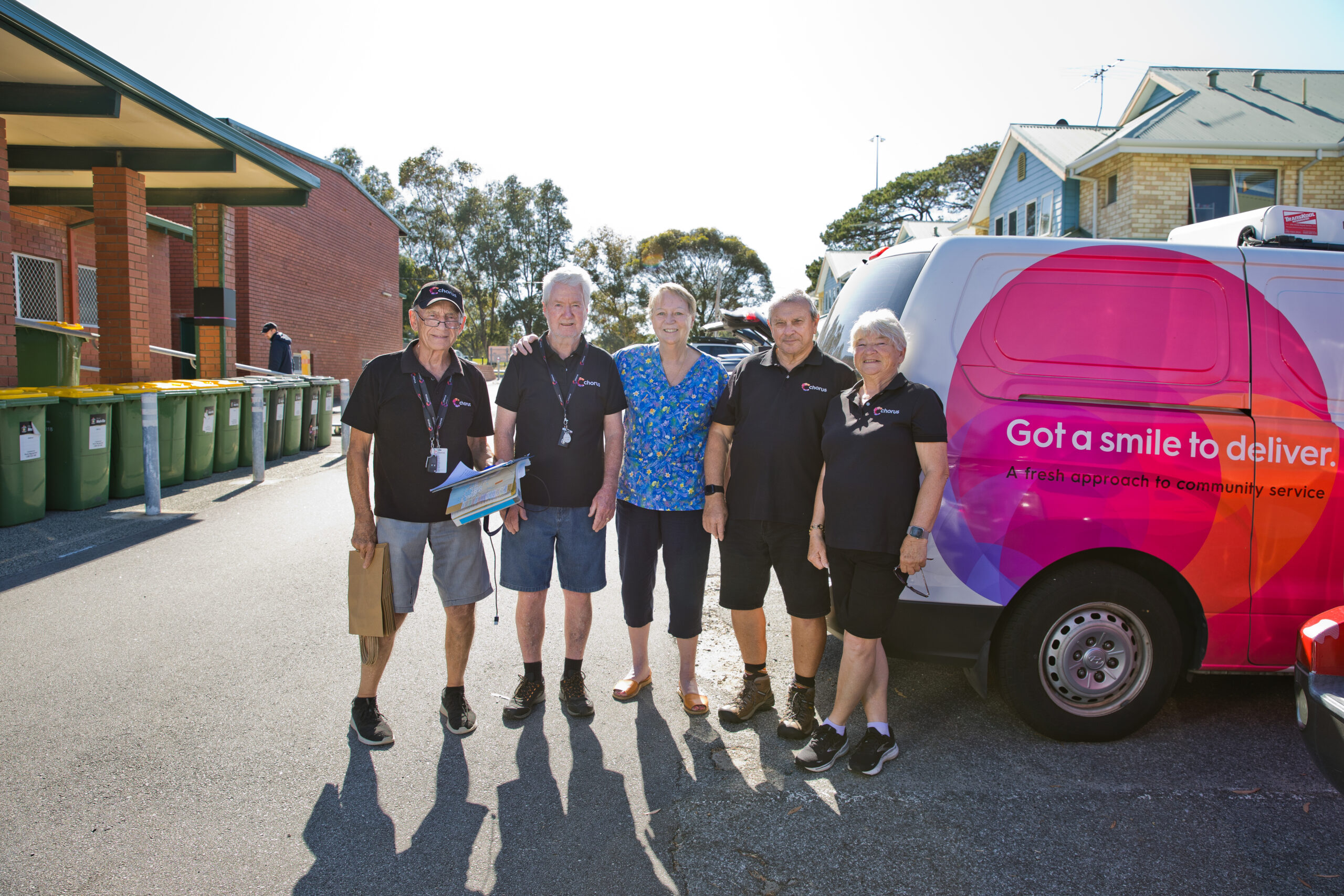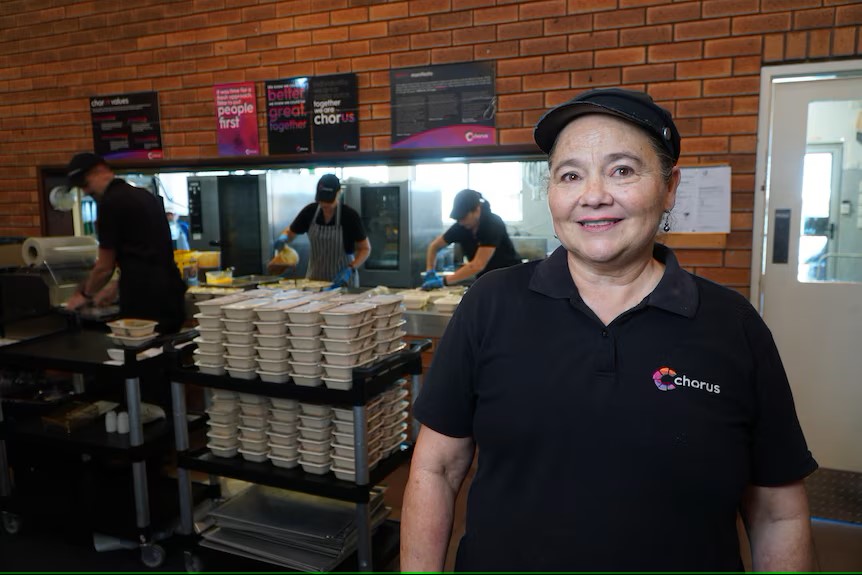Chorus CEO Dan Minchin’s monthly reflection on how we are putting the community back into community service.
November 2020
I’ve been brought back to earth in the last couple of months.
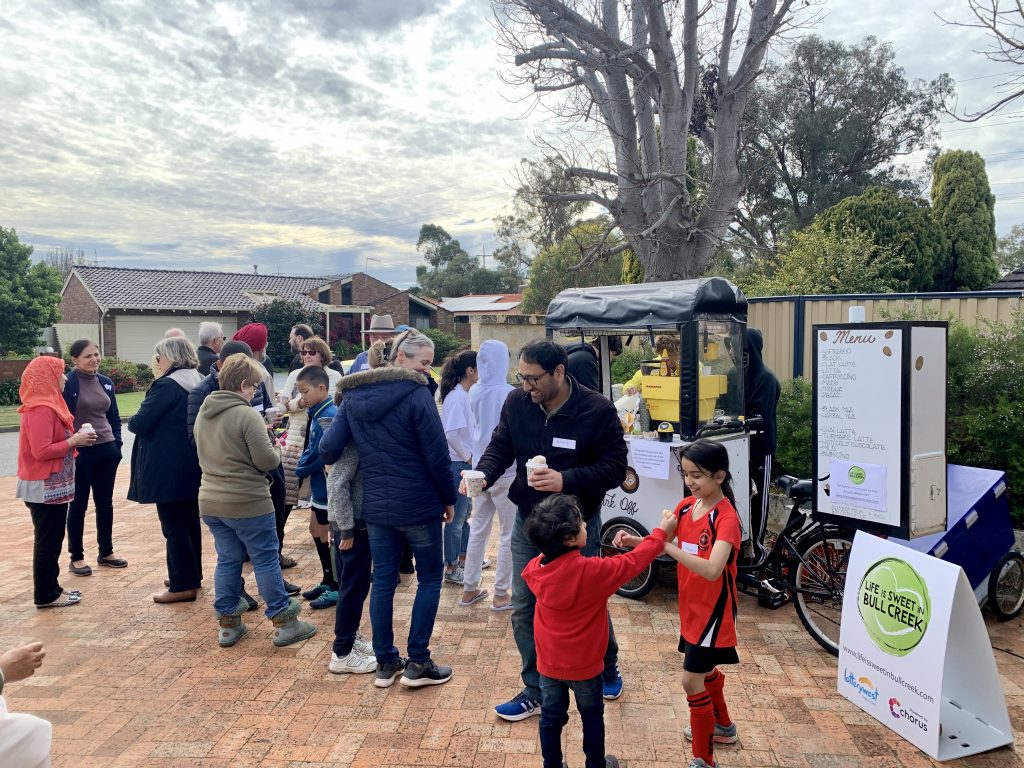 Not in a bad way. In fact, the experience has made me clearer on the path forward for Chorus, along with what is needed to tread it.
Not in a bad way. In fact, the experience has made me clearer on the path forward for Chorus, along with what is needed to tread it.
Anyone who has previously tuned in to the Chorus storyline will be aware of our vision to deliver a fresh approach to community service. While the community care system tends to transactionalise “care”, our belief is that Chorus services would make a bigger difference (at lower taxpayer cost) if they were an interconnected part of stronger, healthier and more empowered local neighbourhoods.
If successful (and replicated), this would contribute to a society which is more humane, equitable, inclusive and sustainable.
Over the past year we have run a series of experiments to test our assumptions about how this might be achieved. The extraordinary conditions we have experienced in 2020 have accelerated our plans to turn what we’ve learnt into operational reality, which we intend to do over the coming months.
Which brings me to my recent key insight: while our vision is lofty, we need to be solidly grounded to make it happen. To deliver the fresh approach, Chorus has to be competent, proficient, and diligent. Chorus needs to become:
SIMPLE – LOCAL – EFFECTIVE
This understanding has come from many directions, and has not been so much of a blinding flash as a cumulative acceptance.
Through spending time in the shoes of Chorus people working with customers and communities, I, along with many other leaders in the organisation, have seen the frustrations and fortunes first-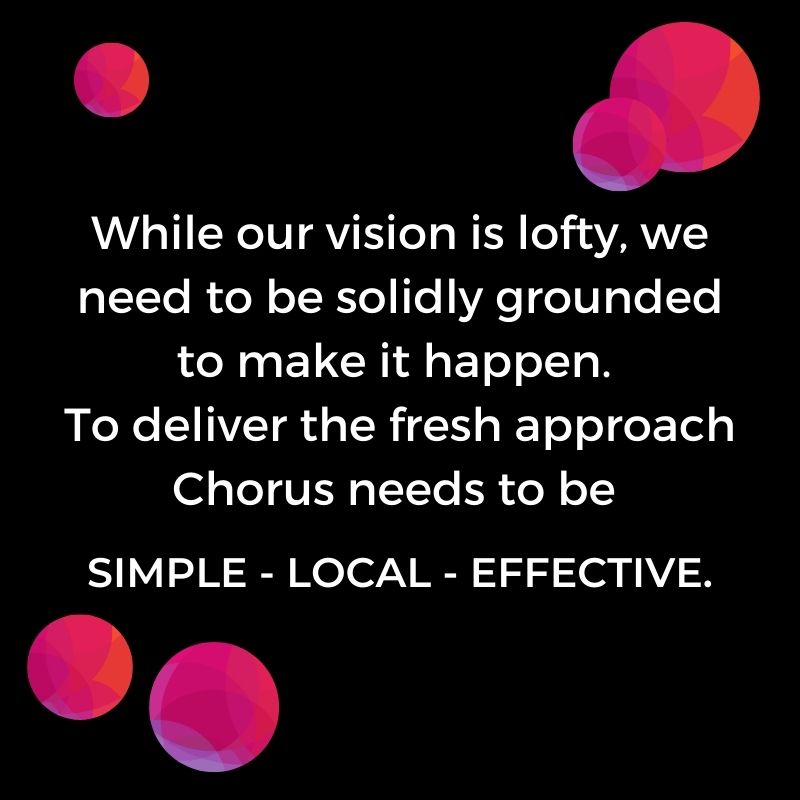 hand. I have experienced how much time and energy is wasted doing business with ourselves, administration and re-work, instead of with customers and communities. And in countless conversations with customers – some satisfied, some not – I have seen the impact this has on the lives of the people we work with.
hand. I have experienced how much time and energy is wasted doing business with ourselves, administration and re-work, instead of with customers and communities. And in countless conversations with customers – some satisfied, some not – I have seen the impact this has on the lives of the people we work with.
This personal experience is backed up in the research. Through analysis of 230 worker diaries across seven companies, Amabile and Kramer found that: “Of all the things that can boost emotions, motivation, and perceptions during a workday, the single most important is making progress in meaningful work.”¹ Not inspirational, not grandiose; in fact, quite run-of-the-mill.
The Chorus Fresh Approach program was built on expansive ideals around the activation of neighbourhoods and reduced health system waste. What we found gave us confidence that this was possible, but not through any form of rocket science. Instead, the key enablers of the fresh approach included the kindness of teams, the time available for relationship-building with customers, and simple maps of people and their network right down to the street level.
Over recent years Chorus has established relationships with organisations who inspire us, including Buurtzorg in the Netherlands. Buurtzorg, which means “neighbourhood care”, is a 15,000 employee organisation which demonstrates fantastic clinical outcomes, high employee satisfaction, strong financial performance… and almost no managers. The secret? A network of small (less than 12 people) autonomous teams, clear rules, a coaching culture, and clever tech.
And we are inspired by our friends Pim and Joost from Corporate Rebels, whose mission to make work fun has led them to identify key attributes of effective organisations. These include transparency, simplicity, lack of hierarchy and an appetite for experimentation.
***
Chorus today is a very good organisation. We have a growing customer base and a workforce of compassionate and committed volunteers and employees. We have a great reputation and a positive culture. We have completed a rare merger of three into one, and integrated employment and customer systems to make it a reality.
But we could be so much better.
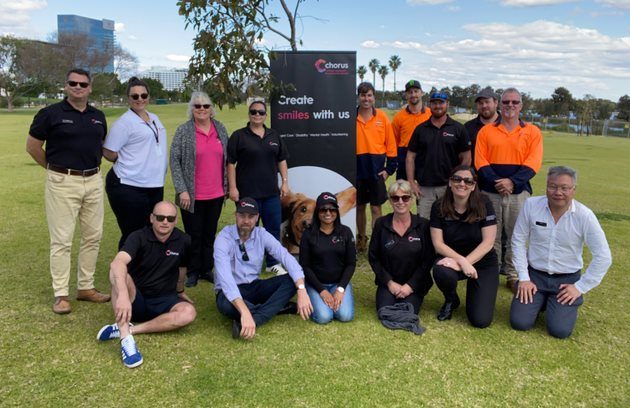 We could be an easier place to work, we could be more responsive to and communicative with customers, we could have fewer injuries and illnesses at work and we could have more financial resilience. Above all, we could demonstrate our fresh approach consistently and by design, rather than sporadically and thanks to the heroic efforts of a few individuals.
We could be an easier place to work, we could be more responsive to and communicative with customers, we could have fewer injuries and illnesses at work and we could have more financial resilience. Above all, we could demonstrate our fresh approach consistently and by design, rather than sporadically and thanks to the heroic efforts of a few individuals.
We have come to understand that improvement will not arise from blue-sky philosophy, but from a methodical commitment to being better at the basics. This is what led us to the guiding belief above: Chorus must be SIMPLE – LOCAL – EFFECTIVE.
We have developed a set of principles based around that mantra. For this blog, I will delve into the importance of simplicity (make sure to read future blogs for a discussion of “local” and “effective”). For us, simple means:
- more time and energy for relationships
- processes that enable us to do our work better
- clarity on how each person contributes to the purpose
- clear paths for people to develop and grow
- our values are consistently understood and evident
- less layers of management.
In other words, most of the energy of the organisation needs to be focused on ensuring Chorus people can focus on the (supposedly) small things that matter, such as relationships, service and personal contribution. We aim to reduce friction, frustrations and the amount of time spent doing business with ourselves. We will give people more visibility of the things that matter, and less of the things that don’t.
***
In early October, Chorus commenced this transition. We hope to have most of the building blocks in place by April, though of course there will be a lot of settling in after that. Throughout the change, we need to ensure current customers’ lives are not disrupted; that services, safety and financial performance hold steady. It is fair to say we are healthily apprehensive of what lies ahead.
Because the paradox, of course, is that it is difficult to make things simple.
We have some things in our favour. We have laid much of the groundwork through the culture we have developed at Chorus in its first four years of life. Feedback from Chorus people shows that there is plenty of enthusiasm for the new way of working, and of course a fair bit of nervousness too. Our approach to the transition is to involve people in the changes that affect them. And to prioritise making their work lives simpler, and therefore better.
Chorus, after all, was founded on the principle of being: different, stronger, together. So we were always going to get here, or somewhere very like here; to the brink of a major change in the way we work. I have been excited by the Chorus vision for years. Now we are bringing it to earth.


